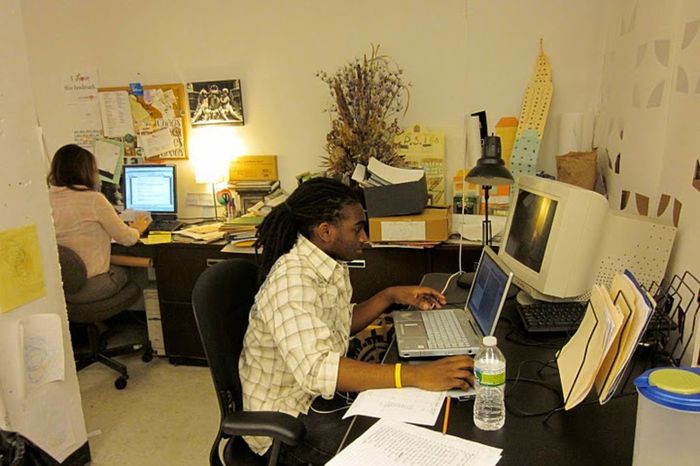Why are so many older women dating younger men in recent romcoms?
Hilerie Kwan investigates whether the gendered ageism of the romcom has finally been overcome

“I’m old enough to be your mother,” sighs Anne Hathaway as she passionately entwines with Amazon’s new heartthrob Nicholas Galitzine in The Idea of You (2024). Young actors entangled in romantic liaisons with veteran actresses appears to be the latest fascination of the romcom genre. Following this film’s success, Hollywood was quick to churn out another iconic pairing, this time between Nicole Kidman and Zac Efron in The Family Affair (2024).
“Romcoms have long been obsessed with the idealistic and stereotypical notion of one true love”
This phenomenon is a groundbreaking shift, considering Hollywood’s reputation for perpetuating the male gaze and old men’s uncanny obsession with younger women (no one exemplifies this better than Leonardo DiCaprio, who is widely claimed to exclusively date women under 25). On a more serious note, the gendered ageism that pervades the industry means a shorter career longevity for actresses and an unrealistic invisibility of ageing on screen.
Romcoms have long been obsessed with the idealistic and stereotypical notion of one true love, making it unlikely for older women to occupy leading roles. As the misogynistic saying goes, “men age like fine wine, women age like milk”. Male actors in their mid-fifties or older are often paired with much younger female protagonists. The same treatment, however, rarely extends to women. Research shows that men constitute 75% of characters who are 50 and over, elucidating age as a factor that markedly affects an actress’ career.
There have been previous instances of older female protagonists in romcoms. In Something’s Gotta Give (2003), iconic actress Diane Keaton negotiates with ageing gracefully as the quirky yet sophisticated Erica Barry. But we must remember that her counterpart, Jack Nicholson, was over a decade older. Likewise, the Hollywood cult classic Sunset Boulevard (1950) depicts an erotic entanglement between an actress who falls from grace and a young, struggling screenwriter. Yet ageism still manifests itself in the villainising of aged women as wicked through the male protagonist’s tragic homicide.
“It’s no longer a woman’s word orbiting around a man’s but the other way around”
If the erasure of older women has long plagued the romcom, what then has triggered this new wave of films portraying relationships between younger men and older women?
Since the 2010s, the genre has spiralled into decline due to its adamant adherence to formulaic, happily-ever-after endings. Meanwhile, modern romances are increasingly multifaceted and complex. Nowadays, women are less inclined to settle down at a young age due to their rising position in society. Thus, the underlying assumption of most romcoms – that marriage is the sole mission for women – seems outdated, if not patriarchal. In the 21st century, ageing has been associated with “success” and “resourcefulness” in an effort to minimise the age-related losses experienced by women. If art mimics life, it is apparent that the traditional romcom plot structure is unsustainable, as it doesn’t reflect women’s position in the 21st century.
Producers are well aware that, if the genre is to avoid dwindling into irrelevance, something must change. Hence, they introduce a 40-year-old single mother falling in love with a 24-year-old “Harry Styles” played by Nicholas Galitzine. The characterisation of the female lead in The Idea of You not only dismantles the idea of everlasting love, but it also challenges the gendered ageism of the archetypal romance.
It’s no coincidence that the male protagonist perfectly embodies the Gen Z definition of “male yearning”. Throughout the film, the audience witnesses him desperately pining for Hathaway, who repeatedly rejects his advances. One trait that unites the female leads portrayed by Hathaway and Kidman is that both are highly established in their careers; it’s no longer a woman’s word orbiting around a man’s but the other way around.
Many claim that the romcom is dead. However, given the genre’s ability to adapt to shifts in gender politics, it seems that love may still be in the air – and on-air, of course.
 Features / Should I stay or should I go? Cambridge students and alumni reflect on how their memories stay with them15 December 2025
Features / Should I stay or should I go? Cambridge students and alumni reflect on how their memories stay with them15 December 2025 News / Cambridge study finds students learn better with notes than AI13 December 2025
News / Cambridge study finds students learn better with notes than AI13 December 2025 News / Uni Scout and Guide Club affirms trans inclusion 12 December 2025
News / Uni Scout and Guide Club affirms trans inclusion 12 December 2025 Comment / The magic of an eight-week term15 December 2025
Comment / The magic of an eight-week term15 December 2025 News / News In Brief: Michaelmas marriages, monogamous mammals, and messaging manipulation15 December 2025
News / News In Brief: Michaelmas marriages, monogamous mammals, and messaging manipulation15 December 2025








